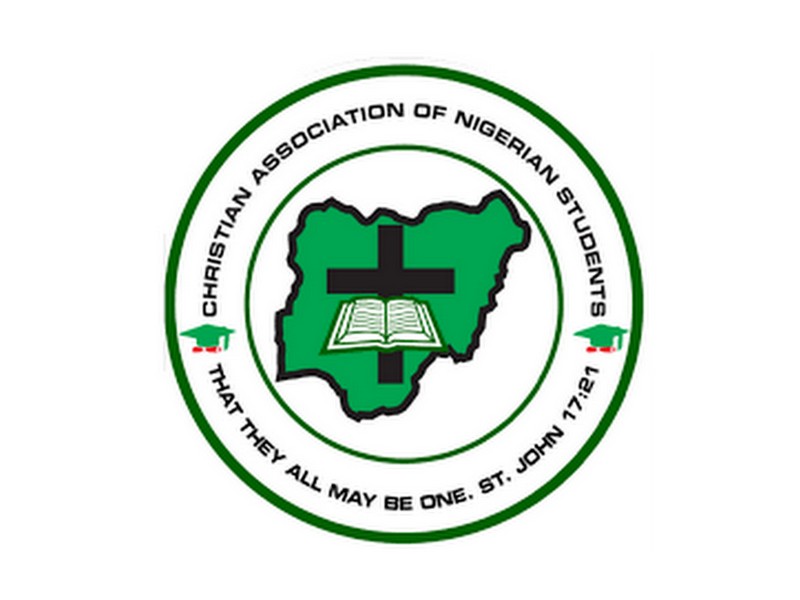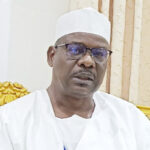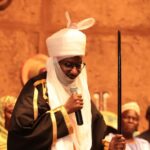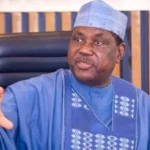I am neither Hausa nor Fulani. And hailing from southern Taraba State I am eminently qualified by geographical definition to be considered a middle belter. But going by the perspective of Bitrus Pogu, Professor Jerry Gana, Mathew Hassan Kukah, Obadiah Mailafia and their ilk under the aegis of the Christian Association of Nigeria (CAN), I am not. The reason simply is that being an adherent of the Islamic religion which the flagbearers of the Middle Belt narrative regard as the principal object of their agitation, I am regarded as an agent of the hated Hausa-Fulani which makes me, like teeming others, to be distrusted.
In this I am in the company of former heads of state Generals Ibrahim Babangida and Abdulsalami Abubakar both of whom come from Minna in Niger State which incidentally is just about a little over an hour travelling distance by road to Agaie/Lapai, Professor Gana’s hometown in the same state. But these two eminent geographical middle belters as well as millions of others like me from the same geopolitical area are not included in the political calculations of the promoters of the Middle Belt idea.
I align with the desire of the numerous non-Hausa ethnic groups in northern Nigeria to chart their own distinct identity within Nigeria. It is, I believe, a necessary factor in our efforts at building the Nigerian nation of our dream drawing on our diversity.
The point about the brutal historical experiences of the minority ethnic groups in the hands of Hausa-Fulani in the pre-colonial and colonial periods of our history is incontestable. It has been historically documented that the area under reference suffered immensely from the slave raiding activities of rulers and agents of the Fulani dominated Sokoto Caliphate.
Ibrahim Nagwamatse of Kontagora for instance was one of many well-known slave raiders whose exploits depopulated the Gbagyi and Nupe areas earning him the moniker of ‘Nagwamatse dodon Gwari’.
But to be sure, it is not Islam alone that was responsible for the brutal historical experience of northern minority ethnic groups. Although Christian missionaries, who brought Christianity to Nigeria, appeared to have been benevolent in their evangelism, in reality the whole missionary enterprise in Africa and Nigeria was not so. Indeed the stage for the eventual invasion and subjugation of the non-European areas of the world was first justified and approved at the Treaty of Tordesillas in Spain between Spain and Portugal in 1494 which was endorsed by the Pope as head of the Christian Church. It was also a Christian cardinal who first recommended that Africans be used as slaves in the plantations of the new world as European adventurers started settling there. This invariably set the stage for the trans-Atlantic slave trade which was to last for almost three centuries during which genocide, slavery and all manners of unimaginable barbarities were meted out on Africans and other non-white races in the name of Christianity.
Not only were many of the Christian missionaries persons of dubious backgrounds, spies and agents of the colonial powers, some of the missions were actually branches of churches who propounded and pursued the idea of white racial superiority over Africans. The Sudan United Mission for instance which operated in parts of northern Nigeria was an arm of the Dutch Reformed Church which actively promoted the doctrine of racial supremacy in southern Africa at the time. It was and still is the church of the white Afrikaners in South Africa who instituted the obnoxious apartheid policy in that country.
In this regard, the current thrust in defining the middle belt identity does not reflect the diversity of and the historical experience and reality of the people of the area. When JS Tarka first established the United Middle Belt Congress (UMBC) to pursue the case for the creation of Middle Belt region for the minority ethnic groups of the North in the first republic, though being a Tiv and Christian, he was careful not to project the party as such. He was aware that the Middle Belt contained diverse ethnicities and religious tendencies which was why Ibrahim Imam, a Muslim, was able to contest and win elections under the UMBC. This was in addition to having several non-Tiv and non-Christians in the party.
The Christian emphasis given to the current Middle Belt agitation also belittles the historic role played by Middle Belt entities in shaping Nigeria from pre-colonial to present times. Entities like the Kwararrafa, Kin Nupe and Igala Kingdoms reigned in much of northern Nigeria. Not only did Middle Belt entities help shape pre-colonial northern Nigeria, middle belters formed the bulk of the colonial army and subsequently the army of independent Nigeria. Continuously in several ways the Middle Belt has been at the forefront in helping to build Nigeria.
It, therefore, amounts to an insult to the collective sensibilities and betrayal of the collective historical role of the people that constitute the Middle Belt of Nigeria to not only lend the support of the area but to join secessionists and others who are bent on destroying what our forebears have helped to build for centuries. Like the belt which holds the trouser in place we are by virtue of our history and unique position in present day Nigeria favoured by God to defend the country from tendencies and groups who intend to break her up.
The trajectory of Bitrus Pogu and his ilk, who incidentally were neither at any time elected or mandated by the people of the Middle Belt to pursue their present course, is therefore not in character with the antecedents of the people of the Middle Belt. If the desire is to break away from the North and create a distinct identity for middle belters, then why drag the area to the dubious embrace of the South West and South East secessionists, who themselves are guilty of the same crimes against the minority ethnic groups around them which we accuse the Hausa-Fulani of? Why can’t we dig down into our illustrious history as builders of Nigeria and our diversity, to stand and safeguard the country which our forbearers built from its internal and external enemies? Where will we rather be; in a Nigeria where we have toiled to build and where we have a say in shaping it or will we rather be in an Oduduwa or Biafran republics that we will be just there to make up the numbers? If we need to do any political realignment of forces in the country why can’t we do it with our fellow minorities in the South South who also share similar historical experiences in Nigeria as us?

 Join Daily Trust WhatsApp Community For Quick Access To News and Happenings Around You.
Join Daily Trust WhatsApp Community For Quick Access To News and Happenings Around You.


